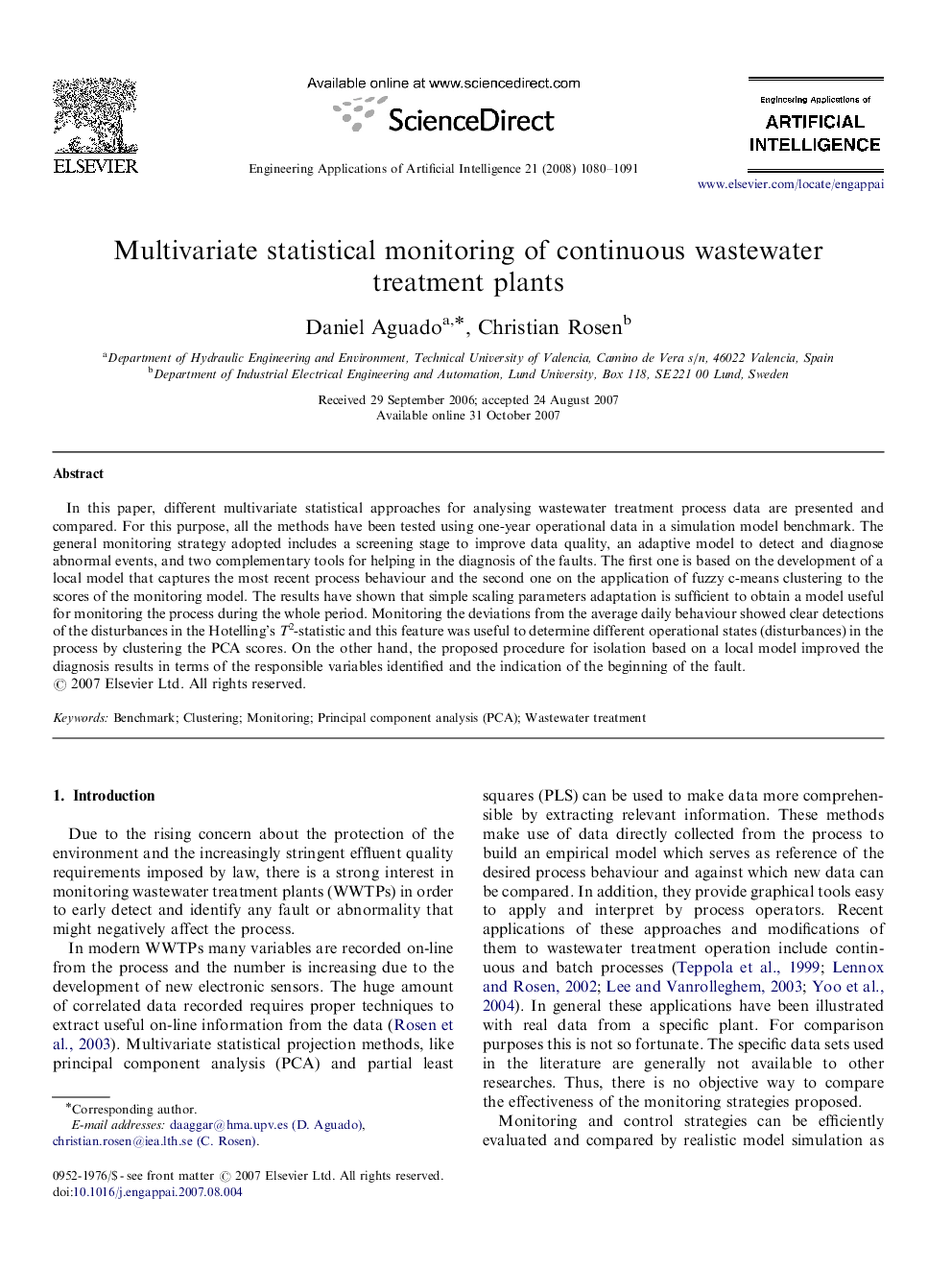| Article ID | Journal | Published Year | Pages | File Type |
|---|---|---|---|---|
| 381704 | Engineering Applications of Artificial Intelligence | 2008 | 12 Pages |
In this paper, different multivariate statistical approaches for analysing wastewater treatment process data are presented and compared. For this purpose, all the methods have been tested using one-year operational data in a simulation model benchmark. The general monitoring strategy adopted includes a screening stage to improve data quality, an adaptive model to detect and diagnose abnormal events, and two complementary tools for helping in the diagnosis of the faults. The first one is based on the development of a local model that captures the most recent process behaviour and the second one on the application of fuzzy c-means clustering to the scores of the monitoring model. The results have shown that simple scaling parameters adaptation is sufficient to obtain a model useful for monitoring the process during the whole period. Monitoring the deviations from the average daily behaviour showed clear detections of the disturbances in the Hotelling's T2-statistic and this feature was useful to determine different operational states (disturbances) in the process by clustering the PCA scores. On the other hand, the proposed procedure for isolation based on a local model improved the diagnosis results in terms of the responsible variables identified and the indication of the beginning of the fault.
